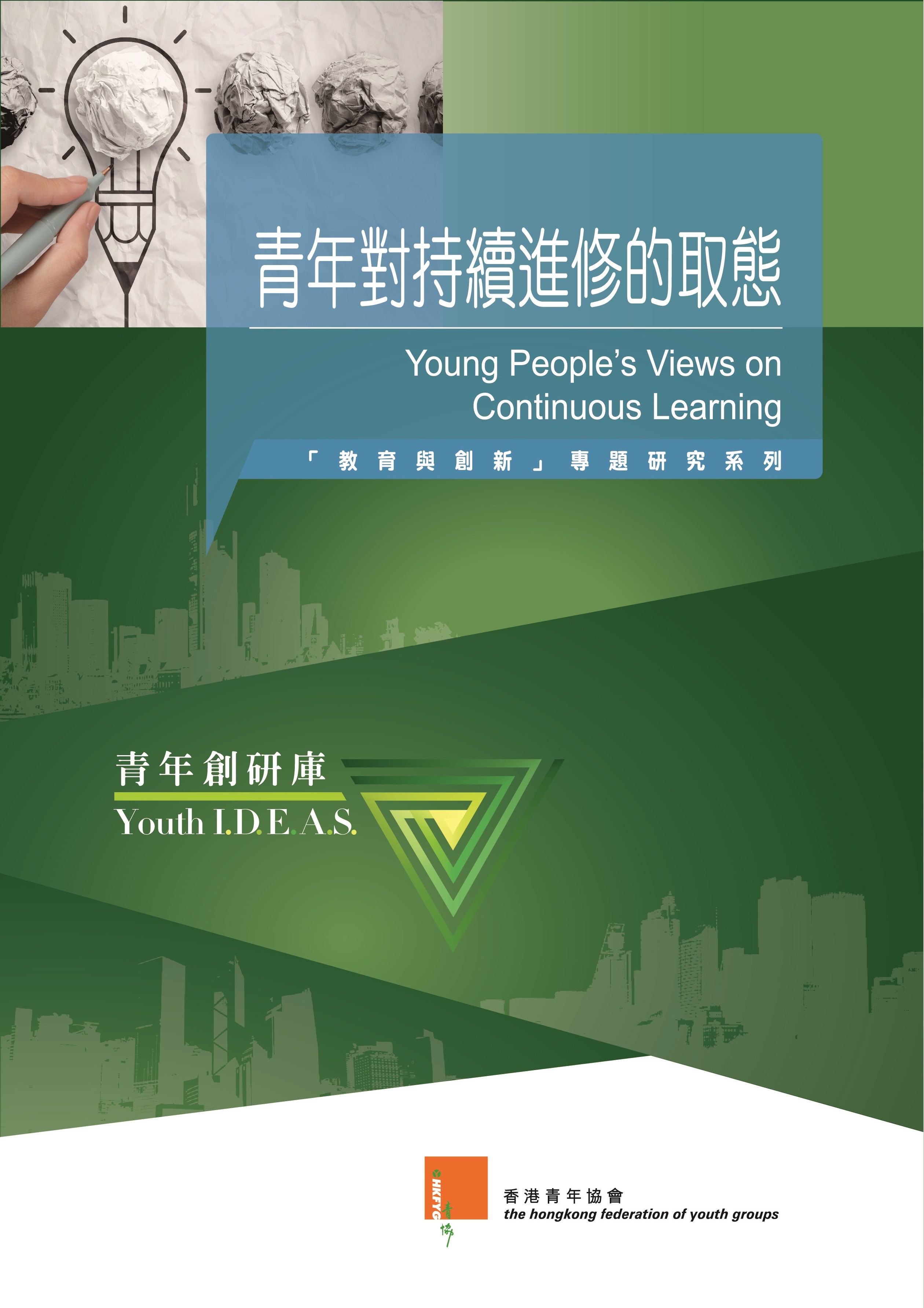Young People’s Views on Continuous Learning
Youth I.D.E.A.S. 12
Education and Innovation
Young People’s Views on Continuous Learning
28 June, 2016

In this knowledge-based society, practising lifelong learning is important. In a survey entitled ‘Indicators of Youth Values 2014’, which was conducted by The Hong Kong Federation of Youth Groups, around ninety (89.4%) respondents believed lifelong learning to be necessary. Around seventy (68.1%) agreed that working and studying at the same time is challenging, revealing the fact that although young people affirm the importance of lifelong learning, in reality there are some obstacles to making continuous learning happen.
In 1998, former chief executive of the Hong Kong SAR government Mr. Tung Kin Wah proposed the idea of “continuous learning, lifelong learning” in his policy address. To encourage the public to participate in continuous learning, the government also established the Continuing Education Fund in 2002. However, as of May 31, 2016, there have been only 385,463 applicants between the ages of 18 and 39 years old who have been successfully reimbursed by subsidies from this fund. These applicants account for only 17% of this age group. Although the Continuing Education Fund has been established for many years, it has not yet been widely used. There is also doubt as to whether the fund can effectively encourage the public to participate in continuous learning.
According to a survey conducted by the HKU School of Professional and Continuing Education regarding the demand for continuing education in Hong Kong, the rate of participation in continuous education has increased from 18% in 2002 to 27.8% in 2009 but started declining to 25.4% in 2013. Especially among those aged 18 to 34, the rate dropped noticeably from 58.0% in 2009 to 39.1% in 2013. This reflects how young people’s motivation to participate in continuous learning has grown weaker. This will negatively impact manpower development as well as young people’s competitiveness. It is worthwhile to look into the reasons behind this decrease in young people’s interest in continuous learning.
This study aims to investigate the popularization of continuous learning in Hong Kong and young people’s views on continuous learning, including learning purpose, concerns, and obstacles, as well as to provide suggestions to encourage greater participation in continuous learning among young people.
Discussion
- The participation rate of young people in continuous learning is declining. Although young people affirm the importance of continuous learning, in reality their engagement with it is still weak due to different factors.
- Young people have many concerns when it comes to continuous learning, including a lack of money, difficulty scheduling work and study time and family factors.
- The reputations and quality of educational institutions these days varies. People also have doubts about the quality of those courses included under the qualification framework, a fact that may negatively affect young people’s intentions to continue learning.
- There is much room for improvement in the operation of the Continuing Education Fund, including in its promotional work, the subsidized amount offered and in the range of subsidized course sectors available; improvement in these areas will encourage young people to continue learning.
- The public’s understanding of the qualification framework is not sufficient these days. Some members of the public do not even have a fundamental knowledge of it. There is a need to strengthen promotional work about the qualification framework and to increase its global recognition.
Recommendation
- Suggest to the government that the subsidy for continuous learning provided by the Continuing Education Fund be doubled to $20,000 in order to show the government’s determination to encourage continuous learning. This could also help lessen the economic burden for some young people in need.
- Suggest to the government that the range of subsidized course sectors be widened. This could encourage the public to actively apply for subsidies from the Continuing Education Fund.
- Suggest to the government that promotional work be strengthened in order to encourage the public to continue learning as well as to achieve lifelong learning.
- Employers should have an open-minded vision and support employees’ participation in continuous learning, which helps them enrich their knowledge and increases their productivity. Moreover, a tax reduction scheme could be launched to encourage employers to support employees’ continuous learning.
- Open courses with more flexible timetables, including daytime and evening sections, so as make continuous learning more convenient for young people with non-daytime working hours or shift work.
- Open online courses for young people with unstable working hours. Moreover, close supervisions and evaluations are required in order to gain the public’s confidence and recognition.




